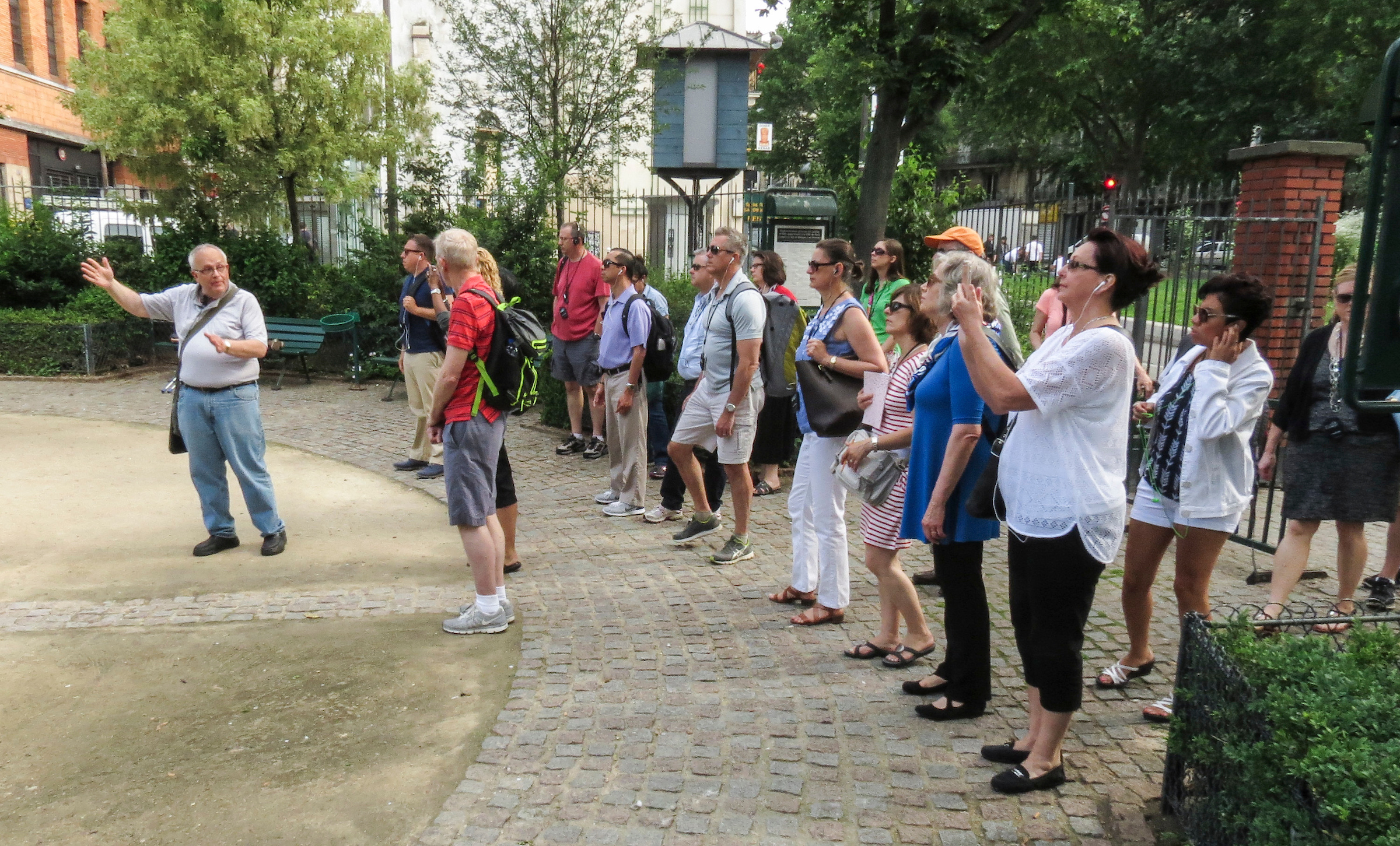 The Rev. Edward Udovic, C.M., leads members of the Vincentian Mission Institute cohort as they walk around the Priory of St. Lazare in France as part of the 2016 Vincentian Heritage Tour. (DePaul University/Jamie Moncrief)
The Rev. Edward Udovic, C.M., leads members of the Vincentian Mission Institute cohort as they walk around the Priory of St. Lazare in France as part of the 2016 Vincentian Heritage Tour. (DePaul University/Jamie Moncrief)Like freshmen heading to campus for the first time, the university community is experiencing some uneasiness about assuming its growing responsibility to nurture the Vincentian tradition as the number of priests and brothers on campus and in leadership roles declines.
As DePaul pondered its future direction during the strategic planning process, faculty, staff and students sensed that the transition is taking place even while the Vincentians are still here. Their remarks said it all:
"I've heard comments among faculty that our Catholic, Vincentian, and urban character should be protected, stable and secure."
"As a student, the mission was a big draw. A huge fear of mine is that something I love could fade away."
"The Vincentians are declining. We have our first lay president. How does the Vincentian character remain a compass, an anchor and a guide for the institution? This needs to be a touchstone for our values, diversity and student profile."
DePaul is not alone in this context. Currently, 60 percent of presidents at U.S.-based member schools of the Association for Catholic Colleges and Universities are lay women and men.
Although carrying on the Vincentian tradition without priests, sisters and brothers may feel like new territory, the Rev. Edward Udovic, C.M., vice president for University Mission and Ministry, confirms that the university is well prepared.
The official Latin title of the Vincentians is the "Congregatio Missionis," according to Fr. Udovic, and it translates to, "A gathering of people for the sake of the mission."
"From this perspective, every faculty, staff and Board of Trustees member is a Vincentian in the truest sense of the word, because we are all - Catholic and non-Catholic alike - called together for the sake of our mission and for the sake of our students," he says. "Our faculty and staff satisfaction surveys, our student surveys, all consistently show overwhelming support for our Vincentian identity. We've embedded this in Vision 2006, 2012, 2018, and now 2024."
Fr. Udovic believes the groundwork is well laid.
"Over the last three decades we've benefitted from the work of the Office of Mission and Values and University Ministry, which are now combined into one division rather than two units," he continues. "We have had the
Vincentian Endowment Fund for more than 25 years funding hundreds of grants. We have the
Vincentian Studies Institute since 2007, establishing DePaul as the premiere center for Vincentian Studies in the world."
DePaul has hundreds of podcasts and videos that illustrate these efforts, he explains. There is also the work of the Vincentian Mission Institute, as well as the learning benefits of participating in Vincentian Heritage trips.
"We have service immersion trips, community-based service learning, the
Institute of Global Homelessness," he says. "These all demonstrate that we've been doing this already for decades."
Two major objectives are proposed in the strategic plan draft to encourage the university to deepen its commitment to the mission. One assures that the university will prepare lay people - including trustees, executives and senior leadership - to assume responsibility for sustaining the mission. The other indicates DePaul will provide thought leadership in the Catholic intellectual tradition - Vincentian topics in particular - and issues of social and environmental justice. Advancing community outreach initiatives are noted as well, among others.
The draft plan is set for a vote by trustees at their May 17 meeting. When approved, the final plan will be shared with the university community.
As faculty, staff and administrators get more comfortable serving as Vincentians in a manner they may not have considered before, they will interpret the mission in relation to contemporary needs, according to the Rev. Chris Robinson, C.M., instructor in religious studies.
"We cannot rely on old answers to new questions," he says. "Today's students, staff, and faculty represent the next wave of Vincentian evolution as they assume the responsibility for answering the Vincentian question: 'What, then, must be done?'"